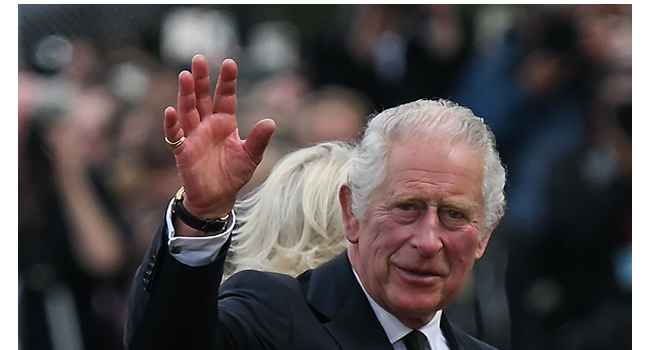King Charles III’s visit to France was postponed on Friday due to violent protests against pension reform, underscoring the president Emmanuel Macron’s mounting security and political issues.
While the Council of Europe has criticised the “excessive use of force” by some police officers during recent demonstrations, the French president has denounced the violence that occurred overnight.
The goal of Charles’ first overseas trip as monarch was to highlight improving Franco-British relations. Instead, it has highlighted how serious the protests that are engulfing Britain’s neighbour are.
According to a UK government spokesperson, Macron requested the delay during talks on Friday morning. The change was attributed to a call for new strikes on the second day of the king’s tour on next Tuesday.
According to Macron’s office, the decision to postpone was made “in order to be able to welcome His Majesty King Charles III in circumstances that reflect our cordial relations.”
Police arrested more than 450 people on Thursday, according to interior ministry figures. In addition, 441 members of the security forces were injured during the most violent day of protests since the start of the year against Macron’s bid to raise the retirement age from 62 to 64.
More than 900 fires were lit around Paris, with radical anarchist groups blamed for setting uncollected rubbish ablaze and smashing shop windows, leading to frequent clashes with riot police.
But rights groups, magistrates and left-wing politicians have also denounced alleged police brutality in recent days.
And the Council of Europe — the continent’s leading human rights watchdog — on Friday warned that sporadic acts of violence “cannot justify excessive use of force by agents of the state” or “deprive peaceful protesters of their right to freedom of assembly”.
In southwestern Bordeaux, protesters on Thursday set fire to the ancient wooden entrance to city hall. Charles III had been set to visit the city on Tuesday, after a day in Paris.
Some Parisians felt the cancellation would avoid further embarrassment for France, with the streets of the capital strewn with rubbish because of a strike by waste collectors and protesters threatening to disrupt the royal visit.
“It would be a wiser decision for him to come in a little while so that we avoid a disaster,” Annick Siguret, a retiree in her 60s, told AFP near overflowing bins and a vandalised bank in the capital.
The second leg of Charles’ European tour — to Germany — is expected to proceed as scheduled on Wednesday.
More than a million people marched in France on Thursday, the protest movement reinvigorated by Macron’s tactics and statements over the last week.
Uproar over the legislation to change the retirement age — which Macron pushed through parliament without a vote last week — has created another huge domestic crisis for the president just 10 months into his second term in office.
“I condemn the violence and offer my full support to the security forces who worked in an exemplary manner,” Macron told reporters Friday during a trip to Brussels.
Macron’s decision to force the legislation through parliament and his refusal to back down in a television interview on Wednesday appeared to have energised many opponents on Thursday.
Commentators are questioning how the crisis will end, just four years after the “Yellow Vest” anti-government demonstrations rocked the country.
“No one knows where the way out lies,” political scientist Bastien Francois from the Sorbonne University in Paris told AFP.
“Everything depends on one man who is a prisoner of the political situation.”
The leader of the moderate CFDT union, Laurent Berger, said Friday he had spoken to an aide to the president and suggested a pause on implementing the pensions law for six months.
“It’s the moment to say ‘listen, let’s put things on pause, let’s wait six months’,” Berger told RTL radio. “It would calm things down.”
Piles of partially burnt rubbish littered the streets of Paris on Friday, while blockades of oil refineries by striking workers are beginning to create fuel shortages around the country.
The ministry of energy transition on Thursday warned that kerosene supply to the capital and its airports was becoming “critical”.
More flights have been cancelled until at least Wednesday at airports around the country due to a strike by air traffic controllers.

